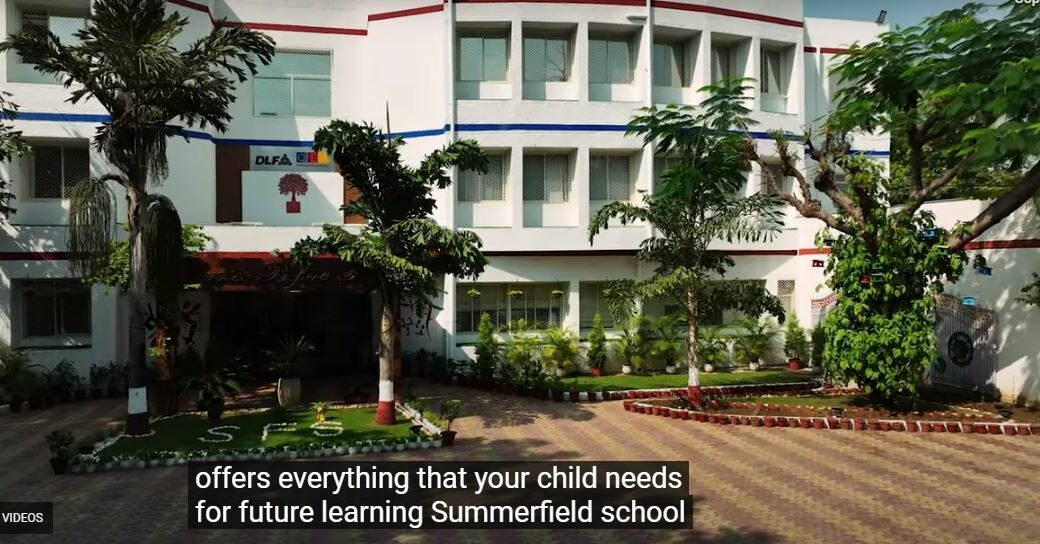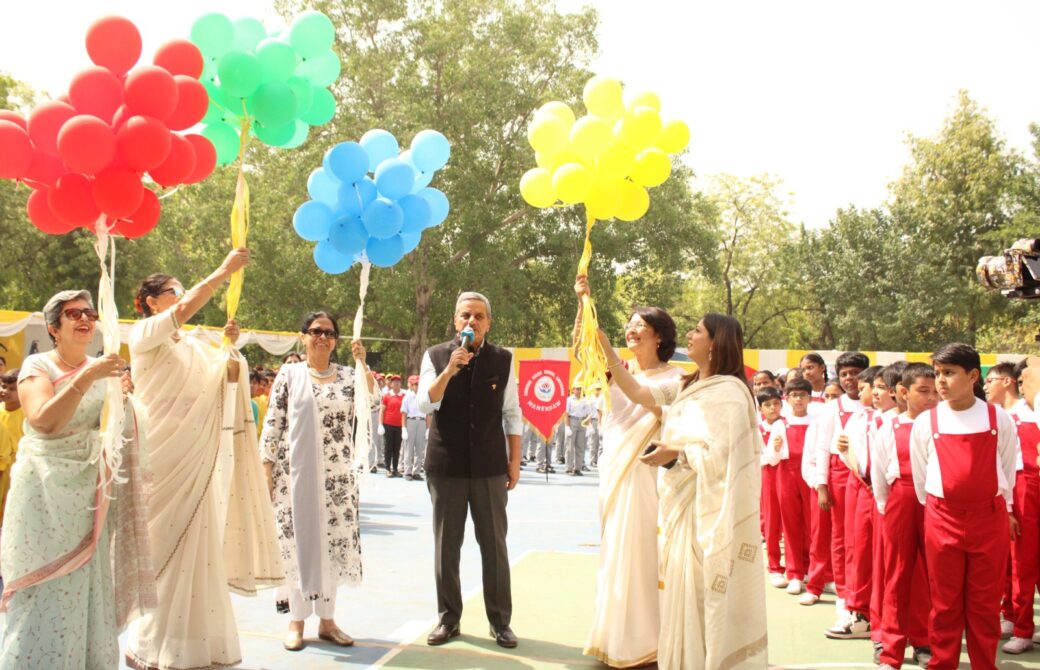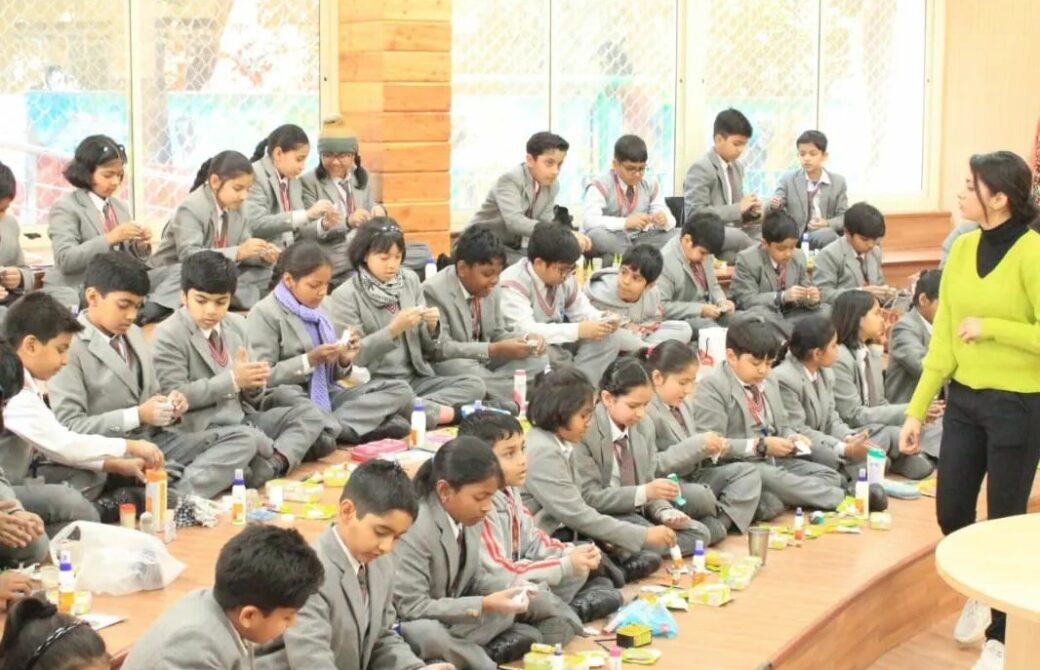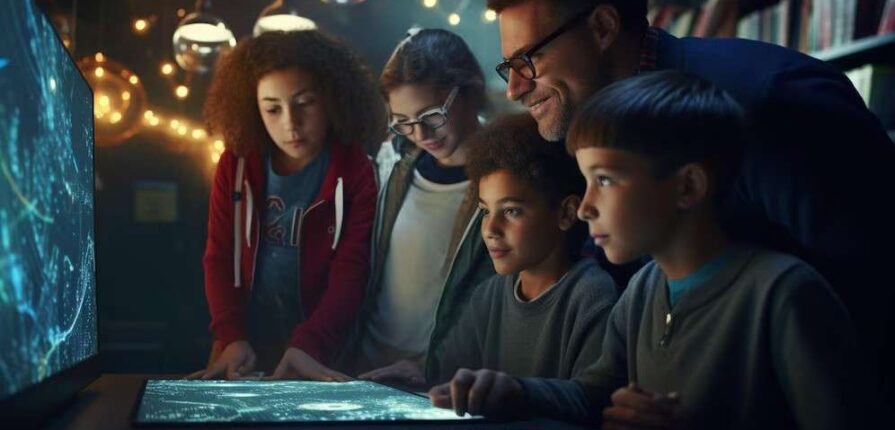Introduction:
As the world continues to evolve at a rapid pace, the future of education faces both significant challenges and exciting opportunities. At Summer Fields, the Top CBSE Schools in Gurgaon where the traditional educational system, which once focused primarily on rote learning and academic performance, is undergoing a transformation. Today, schools are focused on preparing students for a future that demands not just academic knowledge but also the skills necessary to thrive in an ever-changing global landscape. In this article, we will explore how forward-thinking schools, especially those are preparing students for tomorrow’s world by emphasizing innovation, critical thinking, technology integration, and holistic development.
The Changing Landscape of Education
The future of education is not just about keeping up with new technologies or trends, but about equipping students with the tools they need to navigate a complex and interconnected world. The challenges facing future generations are unprecedented: climate change, technological advancements, economic shifts, and social upheaval. As a result, schools are increasingly focusing on preparing students to face these challenges with creativity, adaptability, and resilience.
In Gurgaon, a city known for its vibrant educational scene, many top CBSE schools have already begun to adapt their teaching models to meet the demands of the 21st century. These institutions are creating an environment that fosters both academic excellence and the personal growth of students, ensuring that they are well-equipped to succeed in a rapidly changing world.
Innovation in Teaching Methods
One of the most significant changes in education is the shift from traditional teaching methods to more innovative approaches. Schools are no longer confined to the four walls of the classroom, and learning is no longer limited to textbooks. Today, educators are embracing new methodologies such as project-based learning, flipped classrooms, and experiential learning. These approaches allow students to engage with real-world problems, collaborate with peers, and develop practical skills.
Project-based learning, for example, allows students to explore topics in-depth, often by solving problems or working on projects that are directly relevant to their lives and future careers. This not only enhances students’ problem-solving and critical thinking skills but also gives them the chance to work as a team, honing their communication and collaboration abilities. By encouraging independent research and hands-on learning, schools are nurturing a generation of thinkers who are capable of tackling complex issues with creativity and innovation.
Embracing Technology in Education
As we move further into the 21st century, technology has become an integral part of everyday life, and the education system is no exception. Schools that prepare students for the future understand the importance of integrating technology into their teaching methodologies. By incorporating digital tools into the classroom, schools can provide students with the skills they will need to thrive in an increasingly tech-driven world.
In Gurgaon, several leading CBSE schools have embraced technology by offering students access to smart classrooms, interactive learning platforms, and online resources. This allows students to engage with their studies in a more interactive and dynamic way. Additionally, schools are utilizing technology to enable personalized learning experiences, where students can learn at their own pace and according to their individual needs.
Virtual learning environments, digital simulations, and AI-powered tools are also helping students develop essential skills such as critical thinking, problem-solving, and collaboration. These tools not only enhance the learning experience but also give students a glimpse into the future of work, where digital literacy and technological competence will be crucial for success.
Fostering Critical Thinking and Creativity
In the future, the ability to think critically and creatively will be one of the most sought-after skills. As artificial intelligence and automation continue to transform industries, human creativity and the ability to solve problems in novel ways will become increasingly valuable. For this reason, schools are placing a strong emphasis on fostering these skills in students from a young age.
Top CBSE schools are encouraging students to think critically about the world around them by providing opportunities for debate, discussion, and inquiry-based learning. Students are encouraged to ask questions, analyze information, and draw their own conclusions, rather than simply memorizing facts. This approach not only helps students develop a deeper understanding of the subject matter but also equips them with the skills to tackle complex problems and think outside the box.
In addition to critical thinking, schools are also fostering creativity by offering students opportunities to engage in the arts, music, and design. These subjects not only provide a creative outlet but also help students develop essential skills such as teamwork, communication, and resilience. By nurturing creativity, schools are preparing students to become innovative thinkers who can adapt to change and drive progress.
Social and Emotional Learning (SEL)
While academic excellence is important, it is equally crucial for students to develop strong social and emotional skills. In a rapidly changing world, students will need to navigate diverse social environments, collaborate with people from different backgrounds, and manage stress and uncertainty. Social and emotional learning (SEL) plays a crucial role in helping students develop these skills.
SEL programs teach students to understand and manage their emotions, build positive relationships, and make responsible decisions. By incorporating SEL into the curriculum, schools are helping students develop empathy, resilience, and emotional intelligence. These skills will be essential as students enter the workforce, where collaboration and emotional intelligence are increasingly valued.
In schools across Gurgaon, the importance of SEL is being recognized, and many institutions are integrating these programs into their daily schedules. By fostering a supportive environment where students can explore their emotions and develop their interpersonal skills, schools are ensuring that students are not only academically prepared but also emotionally well-rounded and capable of facing the challenges ahead.
Preparing Students for the Global Workforce
The world of work is changing rapidly, and the future workforce will require a new set of skills. While technical knowledge and expertise will still be important, employers will increasingly value skills such as communication, collaboration, and adaptability. Schools that are preparing students for tomorrow’s world understand the need to cultivate these skills alongside traditional academic knowledge.
In Gurgaon, many schools are focusing on preparing students for the global workforce by offering career counseling, internships, and exposure to different industries. By giving students a taste of the real world, schools are helping them gain practical experience and understand the skills required to succeed in the workplace. Additionally, schools are increasingly encouraging entrepreneurship, innovation, and leadership, ensuring that students are equipped with the skills to become future leaders in their chosen fields.
Furthermore, with globalization, students need to be prepared to work in diverse and multicultural environments. Schools are promoting global awareness and cultural sensitivity by offering international exchange programs, language learning opportunities, and a global curriculum. These initiatives are helping students develop a global perspective, which will be valuable as they enter a world where cross-cultural communication and collaboration are key.
Sustainable Development and Environmental Awareness
As the world faces the challenges of climate change and environmental degradation, schools are increasingly focusing on sustainability and environmental awareness. Preparing students for the future involves instilling in them a sense of responsibility toward the planet and the ability to make informed decisions that will contribute to a more sustainable future.
Many schools are incorporating environmental education into their curriculum, teaching students about sustainability, renewable energy, and conservation. Students are encouraged to participate in eco-friendly initiatives, such as tree planting, recycling drives, and energy-saving projects. By involving students in these activities, schools are fostering a sense of environmental responsibility and equipping students with the knowledge and skills to contribute to a more sustainable world.
Conclusion:
As we look to the future, it’s clear that the role of schools is evolving. The traditional approach to education, focused solely on academic achievement, is being replaced by a more holistic approach that values critical thinking, creativity, emotional intelligence, and real-world skills. At Summer Fields, the Top CBSE Schools in Gurugram where these are leading the way by preparing students for a future that is both exciting and uncertain.
By embracing innovation, technology, and holistic development, these schools are ensuring that their students are not only ready for tomorrow’s world but are equipped to shape it. Whether it’s fostering creativity, promoting social-emotional learning, or preparing students for the global workforce, schools are playing a crucial role in shaping the leaders of tomorrow. In this dynamic and interconnected world, the future of education is bright, and the journey toward it begins in classrooms across the world.







